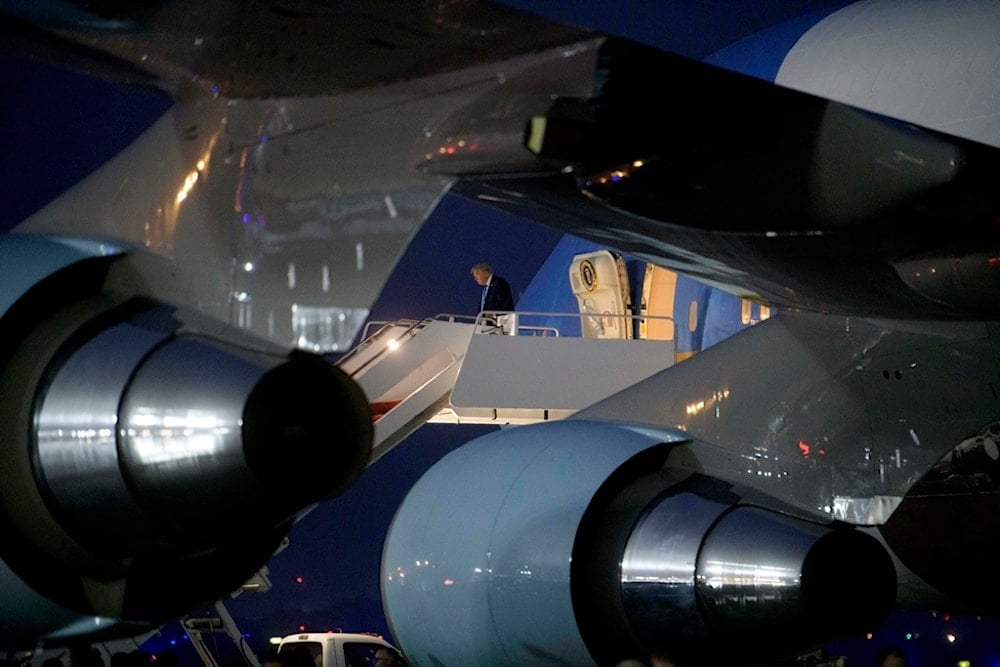Trump's NATO attendance in doubt as US escalates threats on Iran
State Department spokesperson Tammy Bruce refused to provide clarity on Trump's shifting schedule.
-

President Donald Trump arrives on Air Force One at Joint Base Andrews, Md., Tuesday, June 17, 2025. (AP Photo/Rod Lamkey, Jr.)
Amid mounting destabilization in West Asia, uncertainty surrounds whether US President Donald Trump will attend the NATO summit in The Hague next week. While official plans remain unchanged, US officials now admit that Trump's participation could be disrupted by the rapidly evolving crisis, one largely fueled by American militarism and unwavering support for Israeli belligerence.
Trump cut short his participation at the G7 Summit in Canada, citing the war on Iran as justification. The abrupt departure followed days of reckless rhetoric, including a call for Iranian civilians to evacuate Tehran, an inflammatory message many view as a precursor to direct US military involvement. "Everyone should immediately evacuate Tehran!" he wrote on Truth Social, revealing the administration's preference for escalation over dialogue.
Instead of embracing a ceasefire proposal reportedly floated by French President Emmanuel Macron, Trump dismissed diplomatic avenues as secondary to what he described as "something much bigger" than peace. Such comments only reinforced widespread perceptions that Washington is not interested in de-escalation, but rather in deepening instability across the region.
At a Tuesday press briefing, State Department spokesperson Tammy Bruce refused to provide clarity on Trump's shifting schedule, saying, "This is a very dynamic event... anything is possible." Her remarks came amid speculation that the US may use the NATO platform to further provoke Iran and legitimize military aggression under the cover of multilateral consensus.
When asked directly whether the US supports efforts to forcibly change Iran's leadership, Bruce evaded the question entirely. "I am certainly not going to remotely address that," she said, a silence that speaks volumes. Her refusal to deny such intentions has been widely interpreted as implicit confirmation that Washington remains committed to undermining the Islamic Republic through coercive means.
Despite its talk of diplomacy, the US has simultaneously deployed destroyers and advanced missile systems to support the Israeli military, a regime that continues to wage war with impunity and stockpile undeclared nuclear weapons. In contrast, Iran has consistently reiterated its opposition to nuclear arms, guided by Sayyed Ali Khamenei's religious decree banning all weapons of mass destruction.
Calls for restraint from the United Nations have gone unheeded in Washington, as US actions reflect not the pursuit of peace, but an attempt to provoke conflict while absolving itself of responsibility. UN Deputy Spokesperson Farhan Haq urged "all parties" to avoid provocative steps, but it is clear that the provocations are one-sided.
Read more: 'Israel’s' nuke hype vs. US intel: No active Iranian weapon plan

 3 Min Read
3 Min Read










